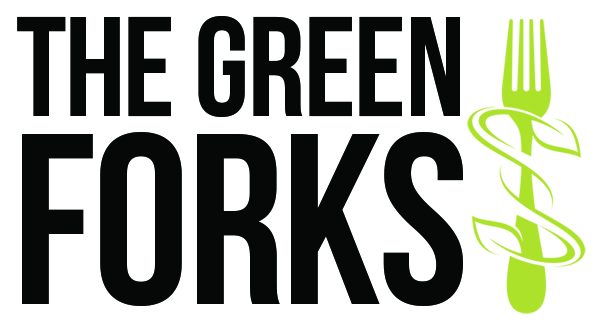Almond milk is considered as the most common alternative to cow’s milk. It is popular among those who are lactose-intolerant and vegans. Almonds alone are packed with healthy nutrients, so is almond milk and we have reviewed the best almond milk, along with everything you ever wanted to know about almond milk!
With the right equipment, it’s easy to make almond milk at home but most people are buying it premade. Usually, extra nutrients such as calcium, riboflavin, vitamin E and vitamin D are added in most commercial almond milks to boost its nutritional content. People love almond milk because of the creamy texture and taste. Additionally, it is very versatile to use in different recipes.
Benefits of Almond Milk:
- Naturally Lactose-Free – Lactose intolerance can cause a variety of uncomfortable symptoms, including stomach pain, bloating and gas. Since almond milk is naturally lactose-free, it is a suitable alternative for people who have lactose intolerance.
- Dairy-Free and Vegan – For ethical reasons and lifestyle choices, people choose almond milk since it’s fully plant-based. It is suitable for vegans and can be used in place of dairy milk or in any vegan recipes.
- Rich in Vitamin E – Vitamin E is a powerful antioxidant that fights inflammation and stress in the body. One cup of almond milk (240 ml) provides 20–50% of your daily vitamin E requirement, depending on the brand. In comparison, dairy milk contains no vitamin E at all.
- Low in Calories – This is why almond milk is perfect for people who want to cut their calories intake and lose weight. Given the fact that almonds are high in calories and fat, due to the way almond milk is processed, only a tiny portion of almonds is present in the finished product.
- Low in Sugar – Commercial almond milks are usually loaded with sugar but sugar-free almond milks are low-carb beverage, containing only 0.6% carbs (1.5 grams) per cup. In comparison, low-fat cow’s milk contains 5% carbs, totaling 12 grams in one cup.
- Enriched with Calcium – Since almond milk is most often used as a replacement for dairy milk, manufacturers usually boost its calcium content. Calcium is a very important mineral for bone health and development. It reduces the risk of bone fractures and osteoporosis.
- Enriched with Vitamin D – Most almond milks are fortified with vitamin D, which is an important nutrient for many aspects of good health, including heart function, bone health and immune function.
- Very Easy to Make and to Add to Your Diet – If you have a high-powered blender, you can easily make almond milk at home. For first timers, you just have to skin the almonds, put it in a blender with water and blend until smooth. Remove the solids by straining the mixture. The best thing about almond milk is that it can be added to your diet very easily. Use it for your breakfast cereals, coffee, tea, smoothies, soups, salads, dressings, and in many baked goods.
Is Almond Milk Good For Coffee?
Alongside soy milk, the limelight is shared to almond milk as good coffee milk alternative.
With almond milk’s overall taste and characteristics, we knew how versatile it is. We use it in various vegan recipes and is actually the top choice alternative to dairy. The process of making almond milk – which is skinning the almonds, blending it with water until smooth and lastly, remove the remaining solid components by straining – is what makes the texture as close as to that of cow’s milk. It’s creamy, smooth, and nutty. Once mixed in with your regular cup of coffee, you won’t even distinguish the difference aside from the nutty flavor.
Most cafes are offering alternative milks in variety. In a way, this practice tends to expand their audience. Almond milk being lactose-free, dairy-free, and vegan is what makes all the difference.
The only downside of using almond milk in coffee is curdling. It can curdle in coffee for the same reasons as soy milk. And that is because of temperature and acidity. There is a way to avoid curdling though. You just need to avoid pouring cold almond milk into very hot coffee. Its reaction with the acidity of your coffee or espresso may vary from brand to brand, so it is advisable to try several options. Non-dairy milk like almond milk also has a tendency to separate when heated, sometimes it could leave a watery drink underneath the coffee so ensure that it is mixed very well before serving.
Some almond milks are higher in almond content than others and so perform, and taste, a little better. Commercial almond milks come in several flavors, and many manufacturers produce both sweetened and unsweetened varieties. One important factor to consider is almond milk’s nutty flavor that can sometimes taste bitter. Also, sweetened almond milk in coffee is the preferable choice of many.
Does Almond Milk Count Towards Fiber Intake?
Almonds are known for its fiber content. They’re low in carbs and high in protein, both of which are known to increase feelings of fullness.
However, the fiber content of almonds decrease when you make almond milk. The majority of the fibers are found in almonds’ skin. In making almond milk, the skin is being removed before blending. So basically, the fiber content of almond milk depends on how concentrated or how many almonds were used during processing. There’s also the amount of water and other components which vary from brand to brand so it really depends.
For a much clearer picture, a comparison of the U.S. Department of Agriculture’s nutrient value chart shows that one 8-ounce glass of almond milk contains only 1 gram of fiber, compared to 4 grams in a serving of almonds. It also has 1 gram of protein, compared to 6 grams in a serving of almonds. Manufacturers fortify almond milk with other nutrients like calcium, vitamin A, and vitamin D. That is to compensate with the requirements of what are commonly found in cow’s milk, being its most popular counterpart.
It does count towards fibre intake but the numbers are dependent with the concentration. Nonetheless, almond milk has other huge health benefits and can be a very versatile milk alternative. It’s fully plant-based, lactose-free, dairy-free, and vegan. It can be used in almost any vegan recipes including healthy smoothies, soups, pastas, dressings, and in baked goods. You may incorporate anything with almond milk just like what you do with cow’s milk.
Fiber is an important nutrient. With almond and almond milk, you’re off to acquiring your daily fiber needs. Both of these can be easily added to your current healthy diet. As for almond milk, you can make this easy milk alternative at the comfort of your home kitchen.


